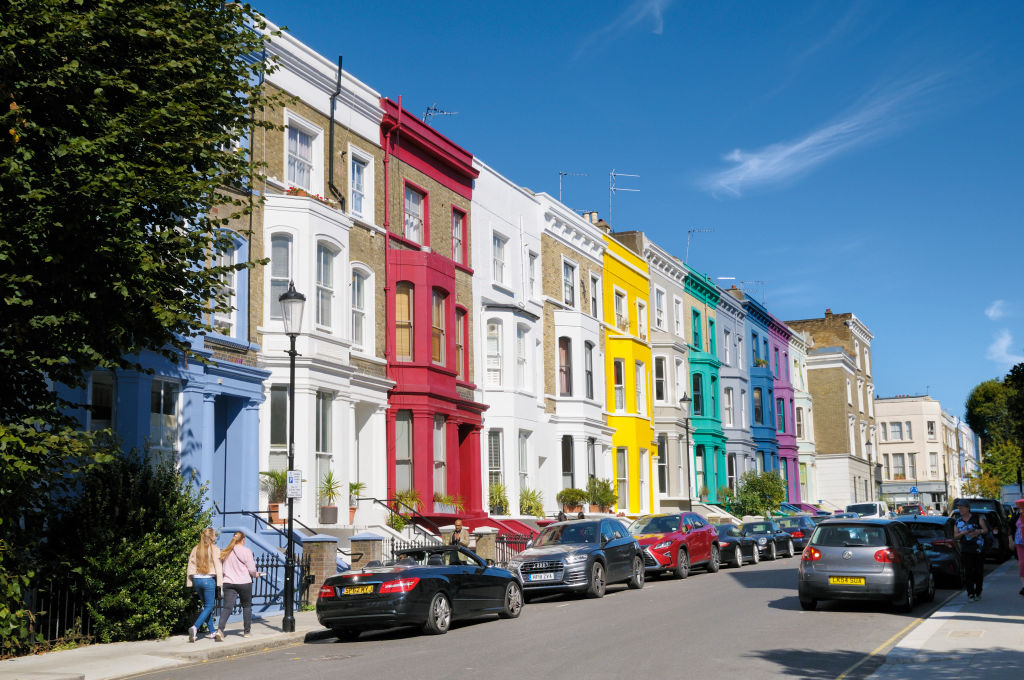
Average council tax across England has risen to over £2,000 a year, adding more pressure to household budgets. The 1 April increase added an extra £100 more a year on average for those living in Band D – a record 5.1% rise.
Council tax is a bill that most of us have to pay to our local authority in the UK, whether you are a homeowner or renter. The money is used to fund a range of services, such as turning street lamps on and having your bins emptied.
What you pay is determined by what your property would have sold for in 1991 in England and 2003 in Wales, as well as your personal circumstances. Over the past four years, it has risen by an average 19%, piling more pressure on squeezed households.
Below, we explain:
- What is council tax?
- How is my council tax bill calculated?
- Am I eligible for a council tax discount?
- What council tax band I am in?
- Will my council tax payments increase?
What is council tax?
Council tax is paid by most adults to their local authority. The home that you live in, whether you own or rent it, will have been placed in a band (see below) which determines the cost of your bill each year.
The band calculations are based on the value of your home as measured on 1 April 1991 in England and 1 April 2003 in Wales.
Council tax revenue is used to fund a number of local services which may include:
- Libraries
- Sports centres
- The fire service and police
- Refuse collection
- Road repairs
- Street lighting
- Social care
It also covers environmental health, trading standards and administration such as local elections and records of births, marriages and deaths.
How is my council tax bill calculated?
How much you pay in council tax depends on several factors:
- The council tax band for your home
- How much money your local council needs to raise
- Your personal circumstances
In England there are eight different council tax bands, running from A (cheapest properties) up to H (most expensive).
Wales has similar price ranges but has a ninth band. In Scotland, there are eight very different bands.
Council tax assumes that two adults or more live in each property. Depending on factors such as who you live with, your income and your health, you may be entitled to a council tax discount.
UK council tax bands: The cheapest and most expensive areas
Over the past 12 years, residents in Wales have seen their council tax rise much faster than those in England and Scotland. However the most expensive area is in Rutland and Nottingham, in the East Midlands.
The 2023/24 council tax rates that came in on 1 April, mean that those living in band D properties in those areas are now paying more than £2,400 a year on average.
While those living in similarly-priced properties in Westminster and Wandsworth, where house prices are among the highest in the UK, are paying less than £900 on average in council tax.
Read more: What are your rights as a tenant?
How do I pay council tax?
Normally your local council will send you a bill explaining all about paying council tax: how much you need to pay, when to pay it, what it covers and how to pay.
Typically the cost is split over ten months, with no council tax payments during February and March.
However, you can ask to spread the cost over 12 months, if you think that reducing the amount paid each time would make life easier for you.
Setting up a direct debit might be a good idea so that your payments automatically leave your account and you are less likely to forget to make a payment. Failing to pay your council tax on time or in full, could have serious consequences.
If you miss instalments, it may affect your credit score – potentially affecting your ability to be accepted for loans such as mortgages or credit cards in future. And you could be asked to pay the full year’s council tax upfront.
However, it is also usually possible to make cash payments by for example using Payzone, Paypoint or Quickcards at post offices, newsagents and convenience shops.
Paying council tax for the first time
New to renting or owning? You have to contact your local authority about setting up council tax for the first time.
If you are unsure about the name of the council that you will be paying, pop in your postcode at Gov.uk.
It will then register you and send a bill, telling you how and when to pay. If you paid council tax where you lived before, tell your old council the date on which you moved out, so you don’t end up paying for a property where you no longer live.
Once you have set up council tax, you should get bills every April, outlining the payments for the year ahead.
Read more: Is equity release right for me?
What is my council tax band?
Your council tax band is based on the value your home was given by the Valuation Office Agency (VOA) as of April 1, 1991.
The bands for England are:
A: Up to £40,000
B: Over £40,000 and up to £52,000
C: Over £52,000 and up to £68,000
D: Over £68,000 and up to £88,000
E: Over £88,000 and up to £120,000
F: Over £120,000 and up to £160,000
G: Over £160,000 and up to £320,000
H: Over £320,000
You can discover your band by checking your council tax bill. Or for a home in England or Wales, look up the address on the government website. For Scotland, see saa.gov.uk. Northern Ireland doesn’t charge council tax but you will have to pay rates.
If you want to know what the council tax is in your area, visit your local council’s website to check the different bills charged for different bands.
For those who think their property should be in a different council tax band (for example, because you discover your home is in a higher band than identical neighbouring houses), you can ask to be reassessed by the VAO.
If successful, you could end up with smaller bills in future plus a rebate of any overpayments.
However, be aware that council tax bands can be adjusted upwards, not just downwards – so there is a risk you might actually end up paying more.
Find out more about what are the hidden costs of buying a house.
How do I challenge my council tax band?
If you believe your property is misvalued and falls into the wrong council tax band, you can challenge the ruling.
To challenge your council tax band, households in England must enter an application online through the Valuation Office Agency (VOA).
You will be asked to enter your postcode and select your property. This will tell you what council tax band you are in.
You then have the opportunity to select if you think it is wrong, either because:
- You think the band is too high or you disagree with a recent band change (A being the lowest band and H being the highest band in England)
- Neighbouring properties are in a lower band
- There has been a physical change to the property – such as it has reduced in size because it has been turned into flats
You must provide details such as the number of bedrooms, or addresses of similar neighbouring properties in a lower band. You should specify which band you think your property falls into, and submit the challenge.
There is no charge for the service. Once you’ve submitted your challenge, you should hear the outcome within two to three months.
Council tax bands in Wales are less likely to be wrong due to an updated revaluation in 2003. Households in Scotland should go through the Scottish Assessors Association.
See the official government website for evidence that could help support your claim.
Am I eligible for a council tax discount?
Below we explain more about council tax discounts, as it is worth checking to see if you are eligible for any help.
1. Low income
If you have no income, low income, or claim benefits such as universal credit, you may be eligible for council tax reduction (CTR).
The discount will depend on your local council and your own circumstances, such as:
- How many adults and children live in the property
- Your benefits
- Income
- Savings
2. You’re a student
Students in full-time education are exempt from council tax. If you are a full-time student living with other full-time students, your property will be exempt from paying council tax.
If you are a full-time student living with one other non-student, they will have to pay council tax on the whole property but they will get a 25% discount. This is because there is only one eligible adult in the property.
3. You live alone or are the only adult in your home
Council tax bills are based on the assumption that two adults live in a property. So if you are the only adult in your home, you can apply for a 25% discount.
There is also a single parent council tax discount, where similarly you can get 25% off if you are the only adult living in a property.
But if you share it with an adult who is a full-time student or apprentice, you may also qualify for the 25% reduction.
4. You or someone you live with has a disability
If you live in a larger property than otherwise needed, because you or someone you live with has a disability, you may be eligible for the Disabled Band Reduction Scheme.
You will need to show that there is a need for an extra room, such as an adapted bathroom, or extra space inside for using a wheelchair.
Additionally, people who are severely mentally impaired are entitled to a full council tax exemption. If you live alone and are medically certified as being “severely mentally impaired” (SMI), you should not pay any council tax at all.
An adult living with someone diagnosed as SMI will get a 25% discount on their council tax bill.
If two adults live with someone who is SMI, there will be no discount. The other adults will take on the full cost of the council tax bill (unless they qualify for another discount).
5. Live-in carer
If you are a live-in carer looking after someone who isn’t your partner, spouse or child under 18, you will also be exempt from council tax.
6. Pension credit
If you or your partner receive the guaranteed credit part of pension credit, your household should not have to pay any council tax.
If you get the savings credit part of pension credit, you should be eligible for a discount, depending on how much you have in savings.
For those thinking about the cost of later-life care, this reader explains how she is making financial preparations to care for her mother.
How to apply for a council tax discount
You will have to apply for a council tax discount. If you think you might be eligible, get in touch with your local authority to ask.
Can I still claim the council tax rebate 2022?
Around 80% of households in England received a £150 discount on their council tax bill last year. The rebate was funded by the government to help families cope with soaring living costs.
To benefit, you had to live in a property within the council tax bands A to D as of 1 April 2022.
The scheme closed on 30 November 2022 and no further payments are to be made beyond this date.
Has UK council tax gone up?
Council tax bills across England rose to more than £2,000 a year for the first time on 1 April.
Government figures show that the average charge for a Band D property is now £2,065 for the 2023-24 year – an increase of £99 or 5.1% rise. The record increase comes after the Chancellor relaxed the rules for town halls.
Until now, your local authority had been able to increase the amount of council tax you pay by up to 2.99% each year, plus 1% for social care. If they want more than this, then they have to ask the residents by way of a local referendum.
However, the government increased the annual council tax increase limit to 5% in the autumn statement. Local authorities must still hold a referendum if they want to raise it by more than 5%.
Although the government has granted special permission to three authorities, Croydon, Slough, and Thurrock, to implement a raise above this cap because of huge gaps in their finances.
The County Councils Network (CCN) has reported that three quarters of eligible local authorities with social care duties have implemented the full 5% increase from April onwards. This costs average households in council tax bands A to D an average of £100 extra each year.
This is in order to help raise money to fill a fiscal hole, and go towards social care.
Am I exempt from council tax?
Some properties and households are exempt from council tax, including where:
- All the residents are under the age of 18
- The only residents suffer from severe mental impairment, such as dementia
- All residents are full-time students or Foreign Language Assistants on the official British Council programme
Usually, you will have to pay council tax on empty property.
If you leave a property unoccupied and unfurnished for more than two years you might be charged up to double the council tax in England. This can rise to four times your normal bill if your home has been empty for 10 years or more.
In Scotland, extra council tax on empty properties kicks in after just a year.
However, certain unoccupied properties will have a council tax exemption. For example, because:
- The person who was occupying the property has moved to be looked after in a care home or hospital
- Or the occupier has moved to care for someone else
- The occupier is in prison, for reasons other than failing to pay their council tax
- The property has been repossessed by the mortgage lender
- It has been condemned, is derelict or has been compulsorily purchased prior to demolition
- The property is a new build which isn’t yet suitable as a dwelling. The council will issue a completion notice with a completion date, marking the point when council tax on a new build becomes payable.
FAQs
Do I pay council tax on a second home or a holiday home?
You’ll usually have to pay council tax on a property you own or rent that’s not your main home, such as furnished second homes or holiday homes but you could qualify for a discount up to 50%.
Empty, unfurnished properties may also qualify for discounts for a limited period.
However, it’s up to the individual local authority. So you will need to contact the relevant council to discover whether they offer a discount.
Do I pay council tax on a holiday caravan?
You won’t face an additional council tax bill for a holiday caravan or boat, if it is kept on a property where council tax is paid.
Nor would you normally have to fork out for council tax on a static caravan or lodge at a holiday park – provided it is only for holidays, and isn’t your main residence.
Do I pay council tax on an inherited property?
If the property is empty, you won’t have to pay council tax until after you get probate.
Even after probate is granted, you may be entitled to a council tax exemption for another six months if the inherited property remains both unoccupied and is still in the name of the person who died.
If you are left living on your own in a property that you inherited after your other half died, then you should apply for a council tax discount for a single person.
Find out more: ‘Buying a house with mum has reduced her inheritance tax bill’
Important information
Some of the products promoted are from our affiliate partners from whom we receive compensation. While we aim to feature some of the best products available, we cannot review every product on the market.



